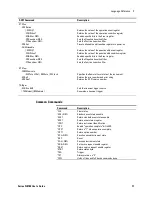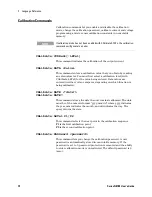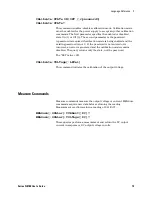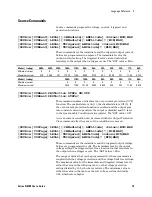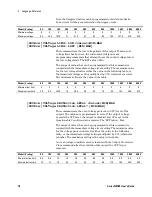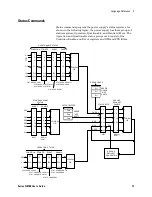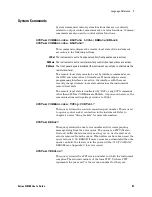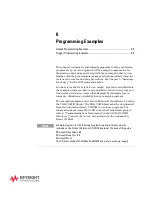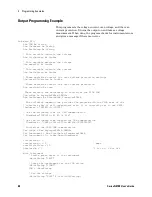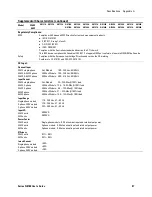
Language Reference
5
Series N8700 User’s Guide
83
System Commands
System commands control system functions that are not directly
related to output control, measurement, or status functions. Common
commands are also used to control system functions.
SYSTem:COMMunicate:RLSTate LOCal|REMote|RWLock
SYSTem:COMMunicate:RLSTate?
This command configures the remote/local state of the instrument
according to the following settings.
LOCal
The instrument is set to front panel control (front panel keys are active).
REMote
The instrument is set to remote interface control (front panel keys are active).
RWLock
The front panel keys are disabled (the instrument can only be controlled via the
remote interface
)
.
The remote/local state can also be set by interface commands over
the GPIB and some other I/O interfaces. When multiple remote
programming interfaces are active, the interface with the most
recently changed remote/local state determines the instrument’s
remote/local state.
The remote/local state is unaffected by *RST or any SCPI commands
other than SYSTem:COMMunicate:RLState. At power-on however, the
communications setting always returns to LOCal.
SYSTem:COMMunicate:TCPip:CONTrol?
This query returns the control connection port number. This is used
to open a control socket connection to the instrument. Refer to
chapter 4 under “Using Sockets” for more information.
SYSTem:ERRor?
This query returns the next error number and its corresponding
message string from the error queue. The queue is a FIFO (first-in,
first-out) buffer that stores errors as they occur. As it is read, each
error is removed from the queue. When all errors have been read, the
query returns 0, NO ERROR. If more errors are accumulated than the
queue can hold, the last error in the queue will be -350, TOO MANY
ERRORS (see Appendix C for error codes).
SYSTem:VERSion?
This query returns the SCPI version number to which the instrument
complies. The returned value is of the form YYYY.V, where YYYY
represents the year and V is the revision number for that year.



